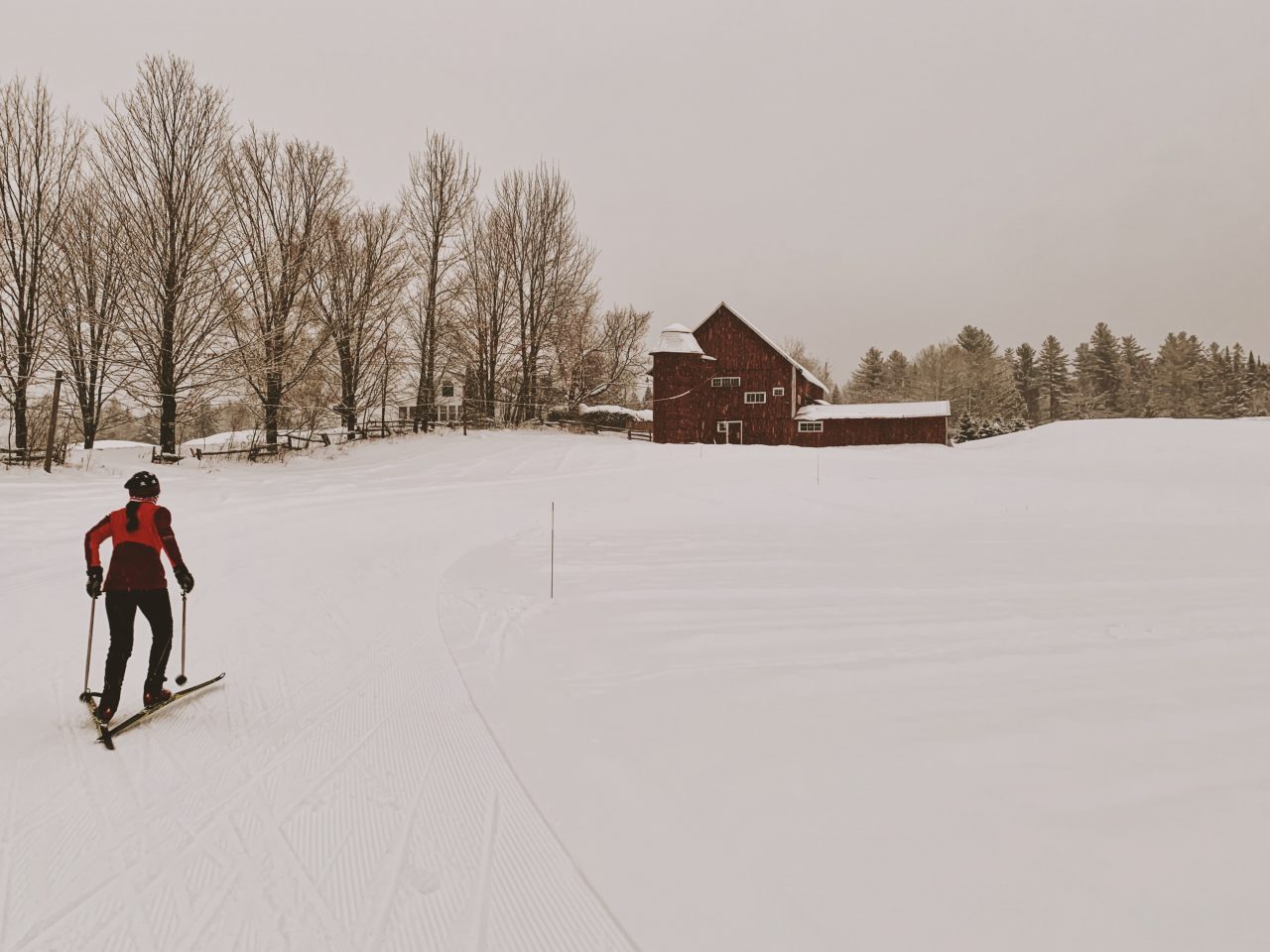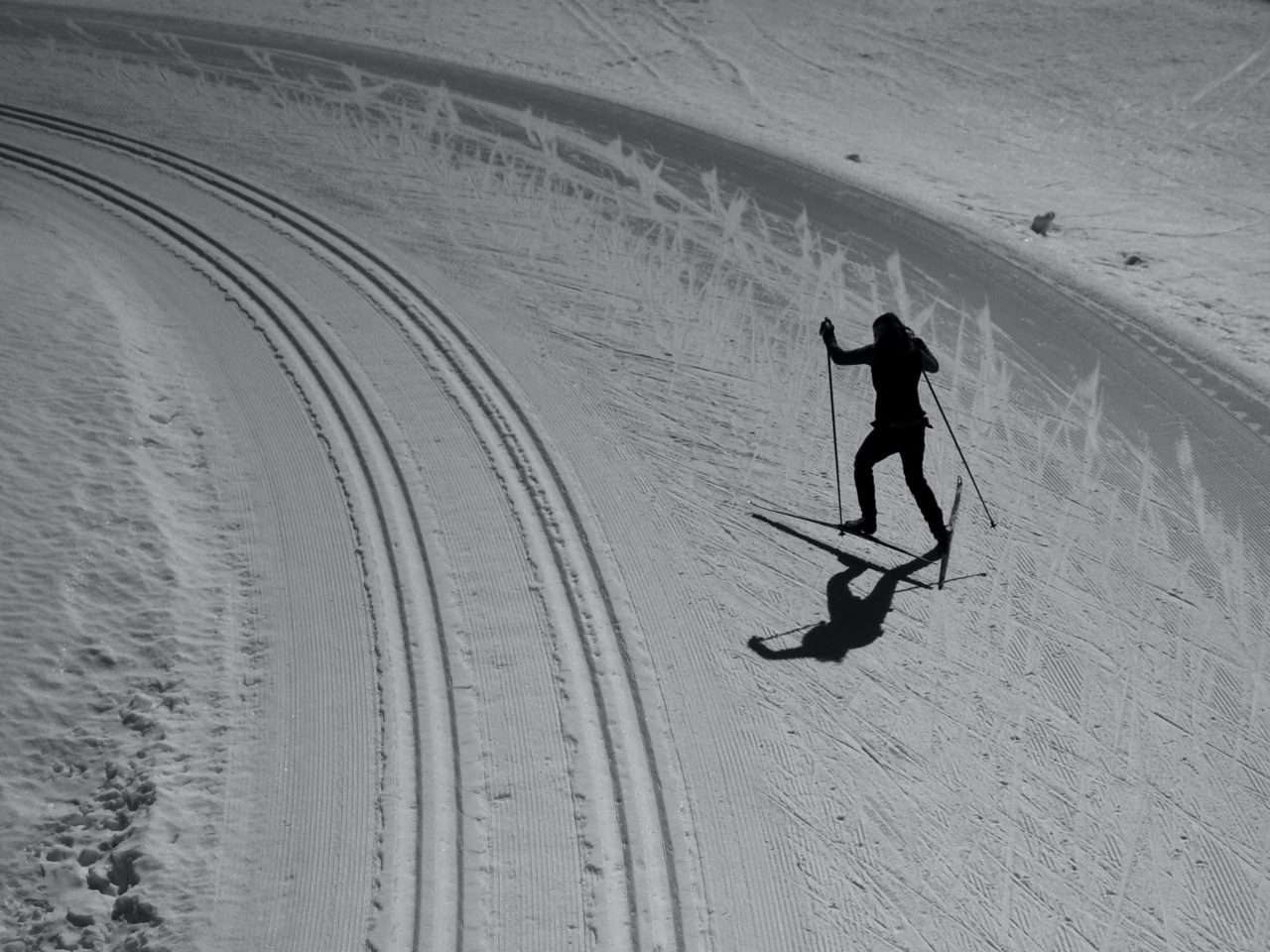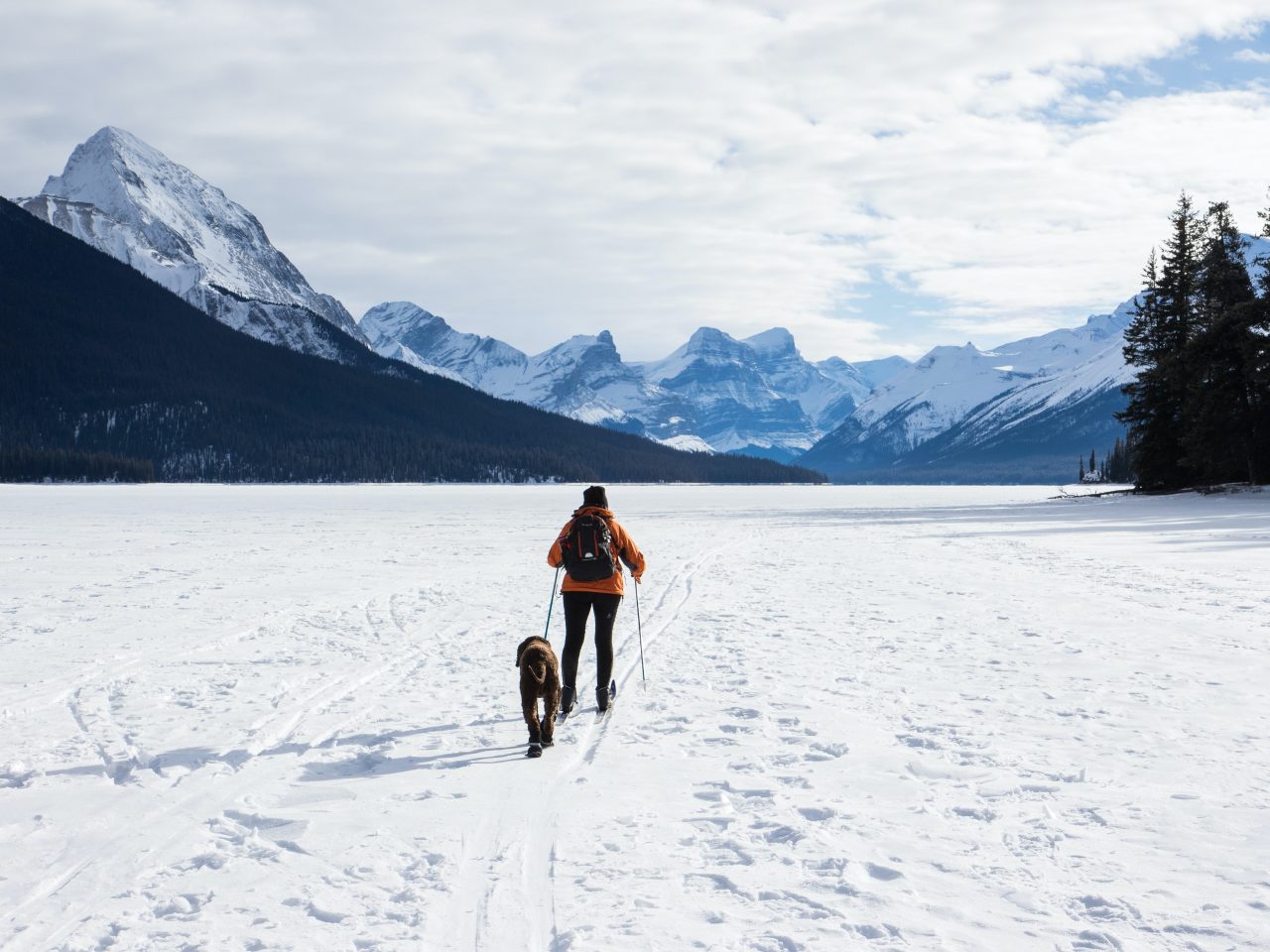If there’s one sport that’s like no other, it’s cross-country skiing. It’s not only a great workout—it’s a low-impact activity anyone can learn if they want to traverse serene, snowy hillside landscapes at their own pace.
For the best experience possible, you need to remember a few things. Having the right gear and safety knowledge will prevent you from getting lost or injured on the trails. Eating and exercising well will help you build the stamina you need to ski for longer. Following leave-no-trace principles—such as not littering and picking up after your pets—will help you preserve the environment for future skiers. More importantly, the National Park Service emphasizes cross-country skiing etiquette. Skiers heading downhill always have the right of way, for example, and you need to step off of the trail if you want to stop for a while.
In the end, a cross-country skiing experience is not just about taking care of yourself, but also being considerate of your fellow skiers and the environment you’re in. That means there’s one habit you may have that just won’t mix with it: smoking. From its environmental to health impacts, cigarette use is something cross-country skiers should avoid. Here’s what you need to know if you’re one of the 28 million smokers in the US.
Why smoking and cross-country skiing don’t mix
It’s an environmental hazard
EarthDay.org notes that cigarette butts are the largest type of litter on the planet, containing toxic chemicals like lead and arsenic that can seep into the environment and pose a major risk to local plant and animal life. Since they’re made of plastic and take years to biodegrade, they pose an even more serious danger on cross-country skiing trails. The snow can hide them, making them harder to spot and clean up before animals find them or their chemicals leach into the soil. That’s why even major ski resorts like Les Gets in France have imposed strict smoking bans: before 2022, it would find thousands of butts littering their grounds come springtime.
It’ll affect your endurance
Cross-country skiing courses are often long—classic trails alone can take up to five hours to complete. Unfortunately, Tobacco Free Life explains smoking can impact your performance in high-endurance sports like this one, making it less likely for you to complete a course you want to try. That’s because cigarettes contain carbon monoxide, which constricts blood flow and further affects the blood cells’ ability to deliver oxygen to your muscles. Cigarette smoke also produces a tar that can coat the insides of your lungs and make them less flexible, making it even harder for your body to absorb oxygen from the air you inhale. That means you’ll both get tired faster and have a harder time breathing. These effects may be more pronounced in the higher altitudes where you’ll find some cross-country skiing trails, as the air will be thinner and contain less oxygen. In fact, if there’s one thing you’ll find in common among many professional cross-country skiers—including those who participate in the Birkie marathon in Wisconsin—it’s that they don’t smoke.
It’s inconsiderate to your fellow skiers
Whether you’re stopped on the side of a trail or are staying at a cross-country ski resort, you’re likely to be around fellow skiers who may accidentally inhale your secondhand smoke. That can pose more than a mere annoyance to them: by using cigarettes near others, you’re putting other people at a similar risk of smoking-related diseases like lung cancer and stroke.

What you can do about it
The best thing to do is to quit smoking altogether. However, that’s easier said than done. Withdrawal symptoms alone, like intense cravings, irritation, headaches, fatigue, and even nausea, can easily cause you to relapse. Smoking cessation is also a long-term process that you may not have time to complete before your next ski trip—where these symptoms may affect your performance on the trails. In the meantime, you can consider packing alternative nicotine products. These don’t contain the harmful chemicals you’ll find in cigarettes and are smoke-free, so they won’t affect your fellow skiers. Many of them are even easier to clean up to prevent littering.
Two oral alternatives you can try are nicotine pouches and lozenges. These are both discreet and travel-friendly options that offer different features depending on what you need. For example, they come in various flavors, from wintergreen to cherry ice, as well as different nicotine strengths to match your current cigarette consumption. Prilla explains how nicotine pouches and lozenges are used differently, which can help further inform your decision. Lozenges from brands like LUCY last for half an hour—but unlike their regular counterparts, it’s recommended not to chew or suck on them for the best nicotine release. They’ll also completely dissolve in your mouth, so there won’t be anything to dispose of. Meanwhile, you can tuck a pouch between your upper lip and gums and keep it there for up to an hour. VELO is a popular brand that offers pouch cans with catch lids, so you don’t need to think about where to throw them on the trail.
You can also try nicotine patches and sprays if you’d prefer a non-oral option. Patches like those from Habitrol are designed to regularly release nicotine all day. They’re also sweat-proof, meaning they’re better positioned to last throughout a cross-country skiing course. Meanwhile, Medscape n that nasal sprays like Nicotrol’s are equally effective: you can use them to deliver nicotine through the nostril around twice an hour, and they’re FDA-approved.
Cross-country skiing is a great way to exercise and commune with nature along with fellow skiers. That’s why smoking just doesn’t go well with it: cigarettes pose countless risks to both yourself and the surroundings you want to enjoy. To respect the sport and the experiences it can reward you, try to taper your cigarette use on your next ski trip.





